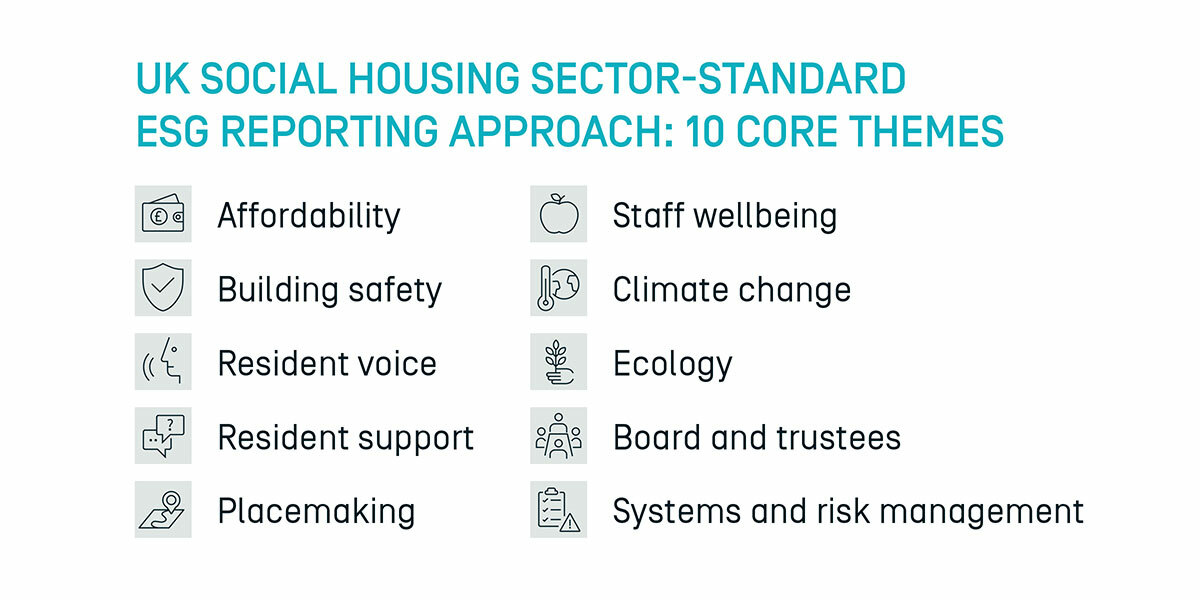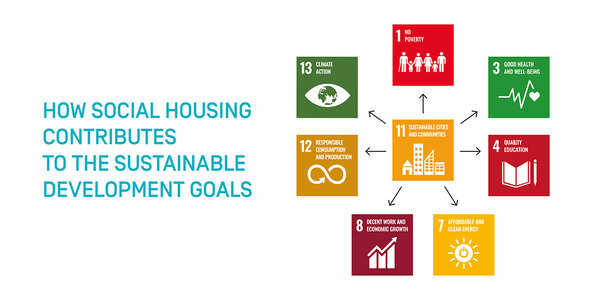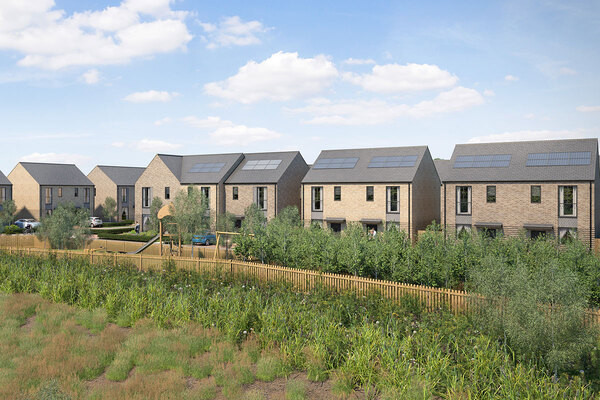‘White paper’ launches to establish ESG standard for social housing
An initiative focused on creating a standardised approach to environmental, social and governance (ESG) reporting for housing associations (HAs) has launched its proposed set of 45 criteria, across 10 themes.
Published in a white paper today (6 May), the criteria have been developed based on a review of existing ESG investor questionnaires and consultations with registered providers, investors and experts in the field.
Housing association Peabody and finance consultancy Centrus led on the project, with specialist impact advisory The Good Economy facilitating and creating the paper.
ESG considerations have risen to prominence in social housing finance over the course of the past year, with a growing number of housing associations and lenders signing sustainability-linked loans, where interest rate discounts are tied to borrowers achieving pre-agreed impact targets.
In the capital markets, the sector saw its first ‘sustainable’ bond, incorporating the green and social bond principles issued by the International Capital Market Association (ICMA), with a £350m issuance from Clarion in January at an effective all-in rate of 1.88 per cent.
Elsewhere, sector aggregator MORhomes became the first UK corporate to adopt the ICMA social bond principles with its debut £250m issuance in February last year.
Adoption of ESG frameworks are seen as advantageous not only in raising the profile of the impact and social value of housing associations but also in attracting a wide pool of investors, including funds specifically focused on ESG, and UK pension funds for whom ESG has become a greater requirement following changes to trustee reporting in October 2019.
However, to date there has not been an accepted standard process for UK housing associations to adopt the principles, and the working group behind today’s white paper have set out to bring the sector towards a consensus.
Where possible, the group’s criteria use metrics already being measured by HAs, and the paper refers to existing approaches such as HACT’s Wellbeing Valuation Approach, and the Sector Scorecard, as well as approaches to measuring social impact taken by HAs including Hyde Group.
The approach is also intended to be suitable for providers of any size, and to focus only on criteria that are important and seen as “relevant, meaningful and capable of being answered”. The criteria span all three elements – environmental, social and governance – across 10 core themes.
These are: affordability; building safety; resident voice; resident support; placemaking; staff wellbeing; climate change; ecology; board and trustees; systems and risk management (see image below).
Partnering organisations
Formed last year as first reported by Social Housing, working group participants included consultancy Ritterwald, whose pan-European ‘Certified Sustainable Housing Label’ was used by Clarion Housing on its debut sustainable bond.
Clarion and fellow housing associations Optivo and Sovereign were involved in the project, while investors included Insight Investment and M&G. Advisors Savills and Trowers & Hamlins, and impact finance organisations Big Society Capital and the Impact Investing Institute also took part.
The group will now consult on the metrics until 19 June through a new website, launched today.
Entitled UK Social Housing: Building a Sector Standard Approach for ESG Reporting, the white paper proposes that the next steps towards embedding a standard will be to pass the baton to a “properly representative industry body”.
This could resemble the Housing Statement of Recommended Practice for financial accounting standards, it said.
In a foreword to the publication, Susan Hickey, former Peabody finance director, and Phil Jenkins, Centrus managing director, acknowledged the “generational challenges” the UK faces in overcoming COVID-19, but they added: “We believe that the need for sustainability, resilience and the importance of environmental, social and governance considerations in investment decisions will in fact be strengthened by the current experience.”
Commenting on the report, Gordon More, chief investment officer at Homes England, said: “Environmental, social and governance (ESG) factors play an increasingly significant part of many investors’ strategies with many explicitly seeking to invest with impact alongside financial returns.
“Affordable housing is uniquely placed to meet these investor objectives, particularly given its clear impact on social outcomes and rigorous governance by the Regulator of Social Housing.”
He added: “We encourage the sector to embrace this approach and co-create common metrics and standards that will help to unlock wider private sector investment.”
Mark Davie, head of social housing at M&G Investments said: “ESG is at the forefront of investor’s minds and increasingly influences their investment decisions. Housing associations are generally very good at and on top of ESG but less good at reporting it. This project is very timely and exciting because it suggests a framework approach for housing associations to report ESG progress, which is acceptable to all stakeholders.”
Mr Jenkins added that a consensus on ESG could potentially unlock “a new era of investment in housing infrastructure”.
Sarah Forster, chief executive at the The Good Economy, said: “The ultimate aim is to help investors make an impact, increase capital flows into the social housing sector, and help drive a more sustainable and fairer society and economy after the COVID-19 emergency.”
Brendan Sarsfield, chief executive of Peabody, added: “The approach to ESG reporting outlined in this report is an excellent starting point for us to demonstrate our impact more effectively and generate the funds to enable the sector to do more.”
RELATED











